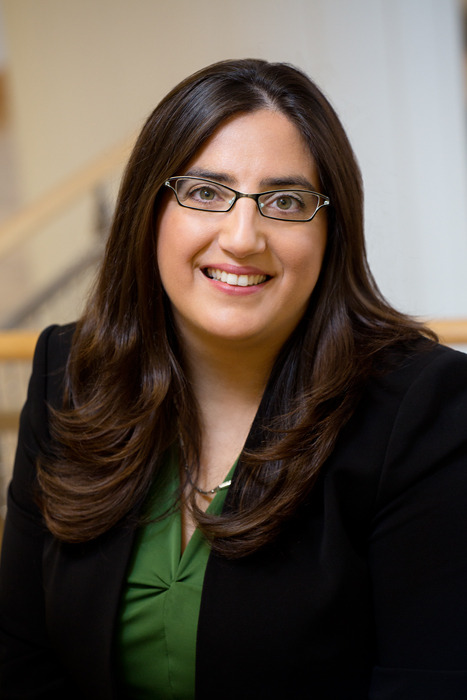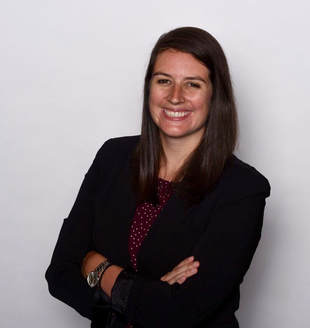Dr. Sin Awarded LAS Undergraduate Teaching Award for her Interactive Congress Course
 Gisela Sin is fascinated with the U.S. Congress. It’s the focus of her research. But the political science professor also knows that learning how Congress works can be extremely boring. All that dry stuff about rules and procedures, and how a bill becomes law, with little feel for the reality of politics.
Gisela Sin is fascinated with the U.S. Congress. It’s the focus of her research. But the political science professor also knows that learning how Congress works can be extremely boring. All that dry stuff about rules and procedures, and how a bill becomes law, with little feel for the reality of politics.
So what if students could learn by doing? Become legislators for a semester?
Sin made that possible several years ago when she discovered a program called LegSim (for “legislative simulation”), developed at the University of Washington. She started using it as a tool to create a simulated House of Representatives within her Congress course.
Now she sees students engaging at a new level. “They really learn the legislative process, very strongly,” she said.
The students, as representatives, choose their party affiliation, as well as real-life districts to represent. They elect their speaker of the house and their party leadership.
They also get assignments to committees, 17 in all, and form issue-oriented caucuses, both serious and whimsical – ranging from the Caucus to Lower the Cost of Higher Education to the Caucus for Hawaiian Shirts on Mondays.
As the semester progresses, they research, write and lobby for legislation; work through potential bills in committees; and end the course with four sessions on the House “floor,” debating and voting on legislation.
The value of LegSim is that it gives students online tools for organizing and communicating within caucuses and committees, as well as member-to-member through “Dear Colleague” letters. It also gives them tools for submitting, moving and monitoring legislation, and resources on rules, floor procedure and etiquette.
Brian Sullivan, a senior from Eaton Rapids, Michigan, thinks the experience in Sin’s course last semester “opened people’s eyes to what goes on in the legislative branches in order to get laws passed.” Majoring in math and computer science and minoring in political science, Sullivan served as chair of the House Rules Committee.
Even within the limits of a semester-long course, Sullivan said, “it felt like such a big deal, writing all this legislation and trying to get it passed, and organizing coalitions and talking to other students … I can’t imagine what the actual legislators go through.”
That’s not even taking into account the time spent on fundraising, constituents, lobbyists and election campaigns – topics dealt with in the course, but not in the simulation. Students also learn the limits of their power, Sin said, and that’s especially true for those in the minority. “Students send me emails saying ‘They don’t let us pass our bills, they don’t let us do anything in committee. Can you do something about it?’ And no, I can’t, so they get very frustrated.”
Likewise, she sees students frustrated when they are passionate about an issue but can’t persuade enough colleagues to vote for it. “This shows them that in order to pass something, many times you have to compromise.” In fact, compromise was one of the things the fall class did surprisingly well, according to Sin. “This class was very accommodating, very bipartisan.”
Jessica Sewell, a junior in political science from Belvidere, Illinois, chaired the Committee on Energy and Commerce. Working through bills, she said, “We all just kind of agreed … we worked really well together.”
Sewell had served an internship with an Illinois congresswoman the summer before the class. She knew the stakes weren’t the same in their classroom simulation as they were in the real Congress.
Still, she wondered why things couldn’t be a little different in Washington. Sin had opened the class asking students for single words to describe Congress. “They were all negative: hopeless, useless, corrupt,” Sewell said. “But at the end, we were able to prove that it doesn’t have to be that way.”
Kylee Britzman Awarded LAS Undergraduate Teaching Award for Graduate Teaching Assistants
Political science teaching assistant Kylee Britzman, who also teaches gender and women’s studies, is a supportive mentor in the Undergraduate Research Apprenticeship and Illinois Promise programs. She is credited for creating a collaborative learning environment that encourages students to understand their own preconceptions and think critically about politics and gender.

Previous Teaching Awards Recipients
Dean’s Awards for Excellence in Undergraduate Teaching
John Vasquez, 2014-2015
Scott Althaus, 2012-2013
Tracy Sulkin, 2011-2012
Robert Pahre, 2010-2011
Lynn M. Martin Award for Distinguished Women Teachers
Samantha Frost, 2009-2010
Awards for Excellence in Undergraduate Teaching for Graduate Teaching Assistants
Audrey Neville, 2014-2015
Megan Remmel, 2012-2013
Chera LaForge, 2011-2012
Alexandru Balas, 2010-2011
Campus Award Excellence in Undergraduate Teaching – Faculty
Robert Pahre, 2011
Illinois Student Senate’s Teaching Excellence Award
John Vasquez, 2014-2015
Campus Award for Excellence in Undergraduate Teaching – Teaching Assistants
Audrey Neville, 2015
Megan Remmel, 2013